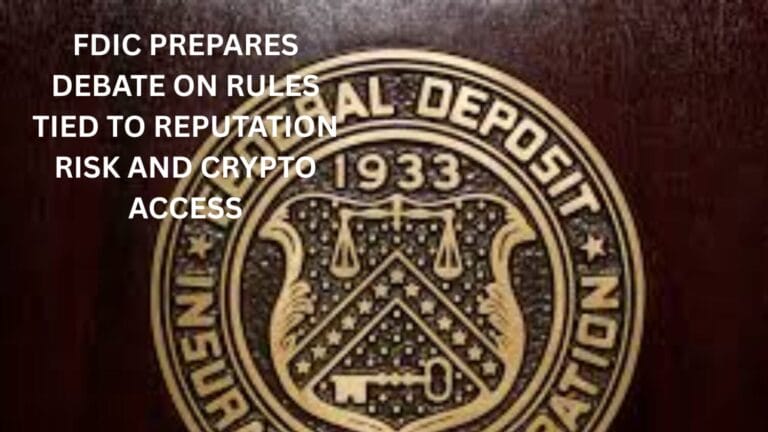Cryptocurrency and traditional banking might be getting closer than ever. Coinbase, one of the biggest crypto companies in the U.S., is thinking about becoming a real bank by applying for a federal bank license. They haven’t made it official yet, but the idea is on the table—and it could change the future of both crypto and regular banking.
A spokesperson from Coinbase said, “We’re thinking about it, but haven’t decided yet.” Other crypto companies like Circle, Paxos, and BitGo are also exploring this path.
Table of Contents
What’s a Bank Charter, and Why Does It Matter?
If Coinbase gets a federal bank charter, it would be allowed to do many things traditional banks can:
- Accept deposits (like your salary or savings)
- Offer loans
- Possibly provide government-insured accounts
This means Coinbase could become more than a crypto exchange—it could turn into a full-service financial institution, blending both crypto and traditional money. That could help more everyday people and businesses feel comfortable using crypto.
The Pros and Cons of Becoming a Bank
Getting a bank license comes with both benefits and challenges.
Pros:
- More trust from the public
- Ability to offer more services
- Easier access to traditional financial systems
Cons:
- Stricter government rules
- More paperwork and audits
- Regular checks by federal and state authorities
Take Anchorage Digital Bank as an example. It’s one of the few crypto companies with a bank license. Even so, it’s now being investigated by U.S. authorities. This shows that with great power comes great responsibility.
Are Regulators Becoming More Crypto-Friendly?
It seems like the U.S. government is starting to look at crypto more positively. Federal Reserve Chair Jerome Powell recently said it’s a good idea to create legal rules for crypto. He also admitted that digital money has real-life uses and could help many people.
In 2021, the U.S. government’s banking watchdog—the Office of the Comptroller of the Currency (OCC)—gave conditional approval to Paxos to start a crypto-focused bank. This suggests the government might be opening the door wider for crypto in the banking world.
New Laws on Stablecoins Could Open More Doors
Two new proposed laws—called the STABLE Act and the GENIUS Act—aim to bring more rules and safety to stablecoins (cryptocurrencies tied to real-world money like the U.S. dollar).
- The STABLE Act would give the federal government more control. It wants companies to keep customer funds separate from business money and may stop some self-created coins.
- The GENIUS Act takes a more flexible approach. It would let both state and federal authorities regulate, while also improving anti-money laundering checks and requiring more cash reserves.
If either of these laws pass, it could make the rules around stablecoins clearer. That would give companies like Coinbase more confidence to go after a bank license.
Crypto and Wall Street: A Growing Relationship
If Coinbase and other crypto firms do become official banks, it would be a huge step forward for the entire industry. Here’s what could happen:
- People may trust crypto companies more.
- Big institutions like banks and investment firms may get more involved.
- Government and crypto firms may work together better.
- Stablecoins could become a regular part of global finance.
Crypto banks might also beat traditional banks at their own game—offering faster services, lower fees, and modern tools built for the digital world.
What This Means for the Future
Coinbase thinking about becoming a bank shows that crypto is growing up. It’s no longer just for techies or investors—it’s becoming part of the everyday financial system.
Soon, your Bitcoin wallet might sit next to your savings account, and your next loan could come from a company built on blockchain.
The world of money is changing fast. And companies like Coinbase are right at the center of that transformation.










